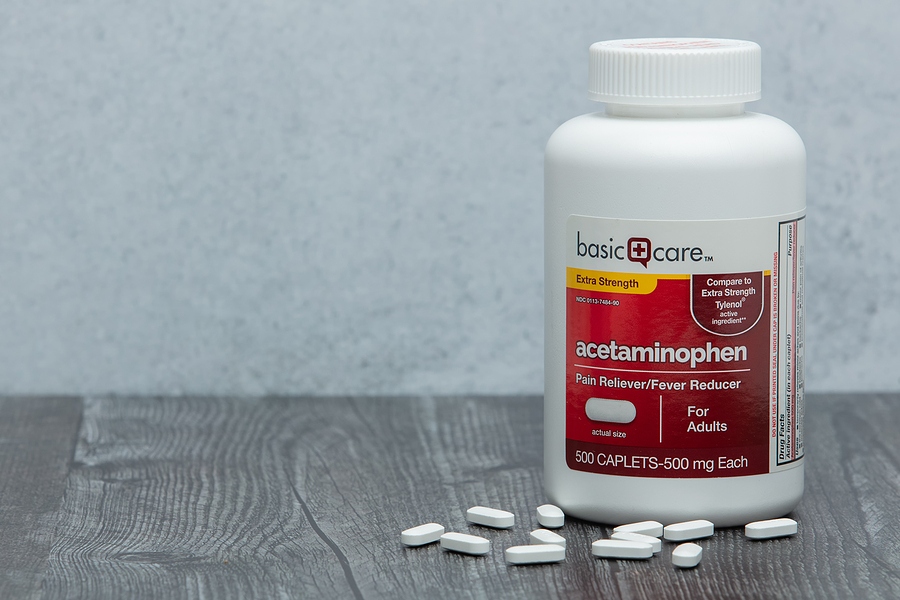You may be considering filing a Tylenol autism lawsuit if your child was diagnosed with ASD (autism spectrum disorder). Parents across the country are taking action due to research that has shown a significant association between ASD and the use of the drug during pregnancy. A defective drug lawyer with the McEwen Law Firm may be able to help.
We have an extensive amount of experience in defective drug and product liability lawsuits. Once you get in touch with us for a free consultation, we’ll listen to the details of your case and let you know how we may be able to help. Just call (800) 732-3070 or contact us online.
Acetaminophen is Not Well Understood
Most people take acetaminophen, the active ingredient in the drug Tylenol, to relieve minor aches and pains. If anyone knows about pain, it’s an expectant mother – going through pregnancy can lead to months of substantial discomfort. But it’s estimated that more than 50 million adults in the United States use the medication at least once a week.
You would assume that since Tylenol is so popular and easily obtained, scientists would have a very good understanding of exactly how it works. But that’s actually not the case. Scientists don’t really know about the mechanisms that make acetaminophen work. However, doctors still recommend the drug on a regular basis. They routinely tell pregnant women that they really couldn’t take an over-the-counter pain reliever that’s safer.
Prenatal Exposure to Tylenol Might Lead to Autism Spectrum Disorder
Unfortunately, researchers have found that women who take Tylenol while pregnant are at an increased risk of giving birth to a child with ASD. Researchers conducting one study measured the amount of acetaminophen in blood samples from hundreds of newborn children. Their findings showed that children with the highest levels of the drug had a risk of developing ASD that was three times those who had the lowest levels.
Does Dosage Effect Risk?
It does appear that there’s a link between the amount of Tylenol an expectant mother takes and the risk of ASD. Lower dosages may not put children at risk as much as higher doses.
As a result, more and more doctors are recommending against pregnant women taking Tylenol to reduce their discomfort. That’s a pretty profound change of mind, one that makes it impossible to ignore the potential dangers of using acetaminophen.
The Tylenol Autism Class Action Lawsuit
If your child developed ASD and you took high doses of Tylenol (or another product that contains acetaminophen) during pregnancy, you may be able to file a lawsuit against the manufacturer of the medication. Possible compensation you could pursue includes medical bills, emotional and physical pain and suffering, and more.
Understanding Product Liability
When a company’s product causes harm, that company is liable for the associated damages. The victim can file a product liability lawsuit to recover those costs. The Tylenol Autism lawsuit is a failure to warn lawsuit. The manufacturers failed to warn users of the potential risks of using their product.
In the matter of a Tylenol autism lawsuit, plaintiffs will more than likely claim the manufacturer failed to warn of the potential dangers of taking the medication while pregnant. A failure to warn case typically involves claims that the maker of a product didn’t provide proper instructions regarding how to use that product safely.
Symptoms of Autism Spectrum Disorder
ASD is the name given to several different conditions that affect a child’s neurological development. Symptoms include the following:
- Difficulty expressing emotions
- Increased or vastly decreased sensitivity to textures, light, sound, and temperature
- Trouble properly interpreting social cues and difficulty behaving appropriately as a result
- Minor or major changes to routine cause extreme distress
- Avoiding eye contact
Who Can File a Tylenol Autism Lawsuit?
If any of the following apply to you or your child, you may qualify for the Tylenol autism lawsuit.
- The newborn was exposed to acetaminophen or Tylenol while in the mother’s womb.
- The child was either diagnosed with ASD or participated in an early autism intervention program.
- The child is either participating or formerly participating in an IEP (individual education program).
Disqualifying Factors
However, there are several issues that will disqualify you from filing, including the following:
- The mother either drank alcohol, took illegal drugs, or smoked tobacco while pregnant.
- The father was 45 years or older at the time of the child’s birth, or the mother was 40 or older.
- Either of the child’s parents have diagnosed autism.
- The child is 18 years or older or was born after March 26, 2020.
- The child has Tourette, Down, or Fragile X syndrome.
Evidence Used to Prove the Connection Between Tylenol and Autism in Individual Cases
In order for you to obtain a fair settlement or to achieve a positive result through a drug lawsuit trial, you’re going to need solid evidence to back your case.
You may be able to show that a medical professional recommended that you take Tylenol while pregnant. This recommendation should be in your medical records. You may also have itemized receipts that prove you used the drug during this time. You will also need medical records verifying your child’s ASD diagnosis, as well as testimony from the child’s psychiatrist.
Contact US Drug Lawsuit to See if Your Child Qualifies
One of our skilled, experienced attorneys can answer any questions you may have. We’re no strangers to defeating the formidable opposition that can make it very challenging to win a product liability lawsuit. As a result, you can rest assured we’ll have the knowledge it takes to get you the compensation you deserve.
Please get in touch as soon as possible for a free evaluation of your case. You can give us a call at (800) 732-3070 or contact us online.
